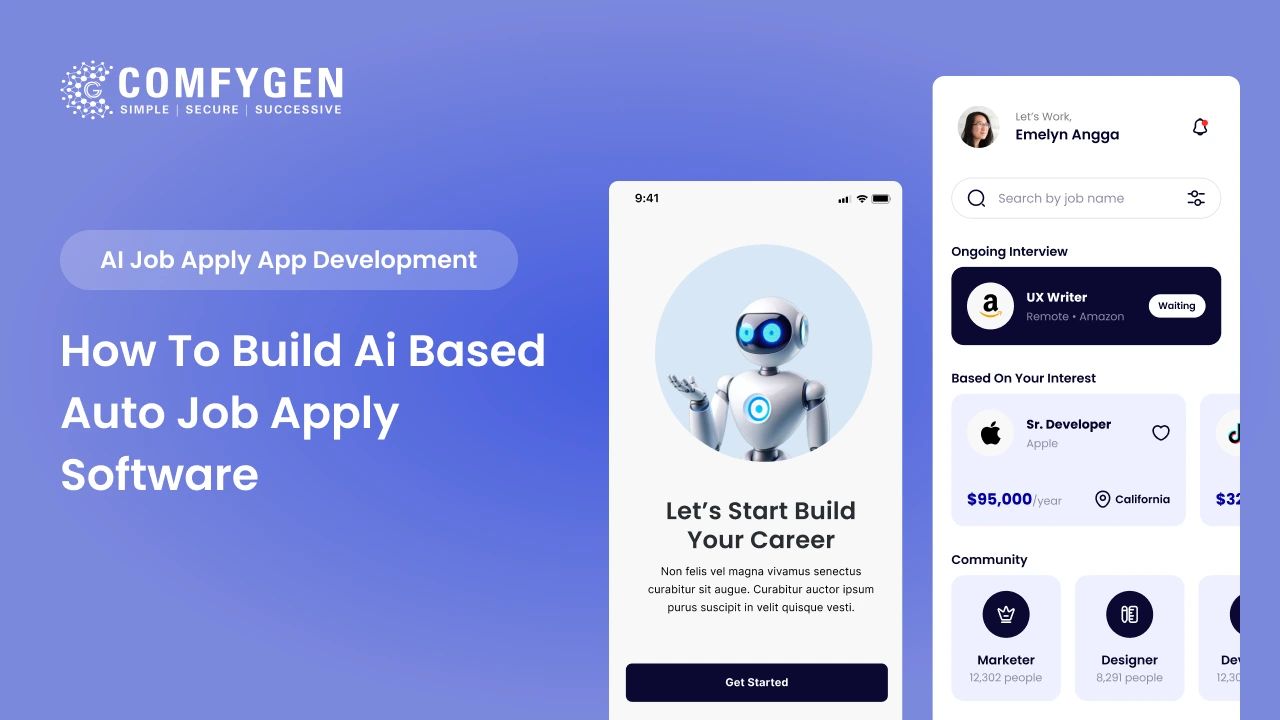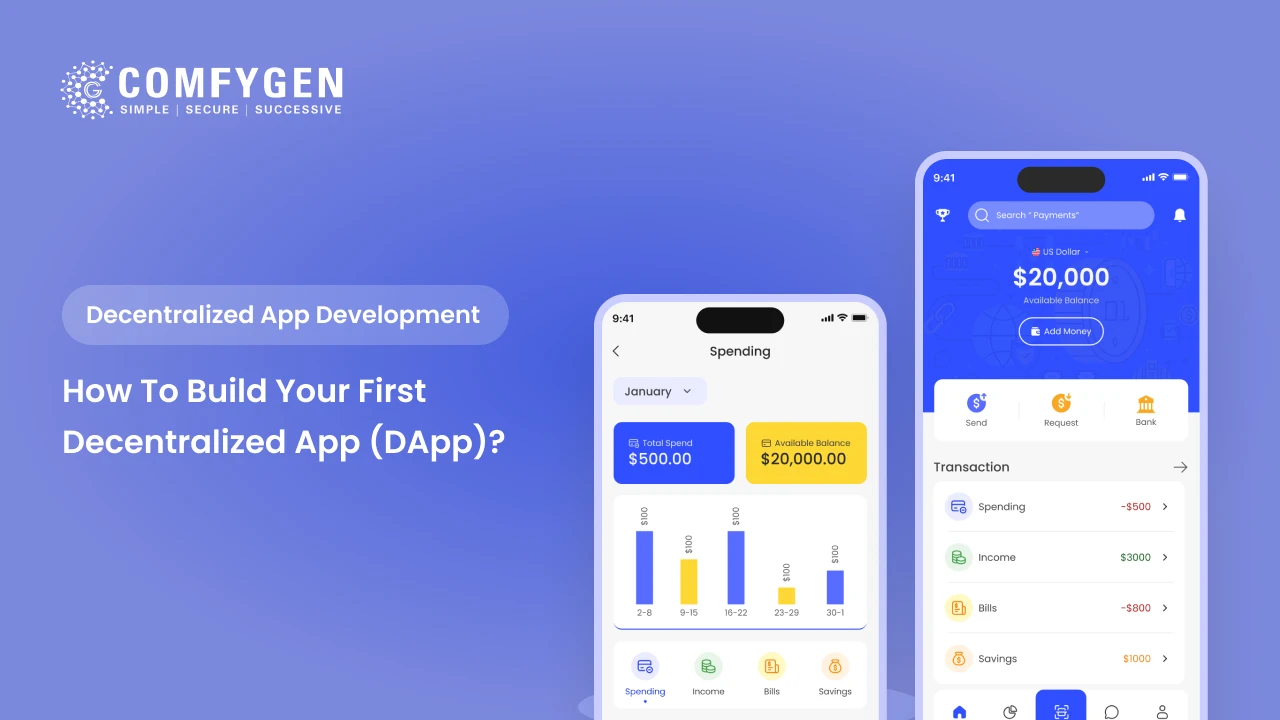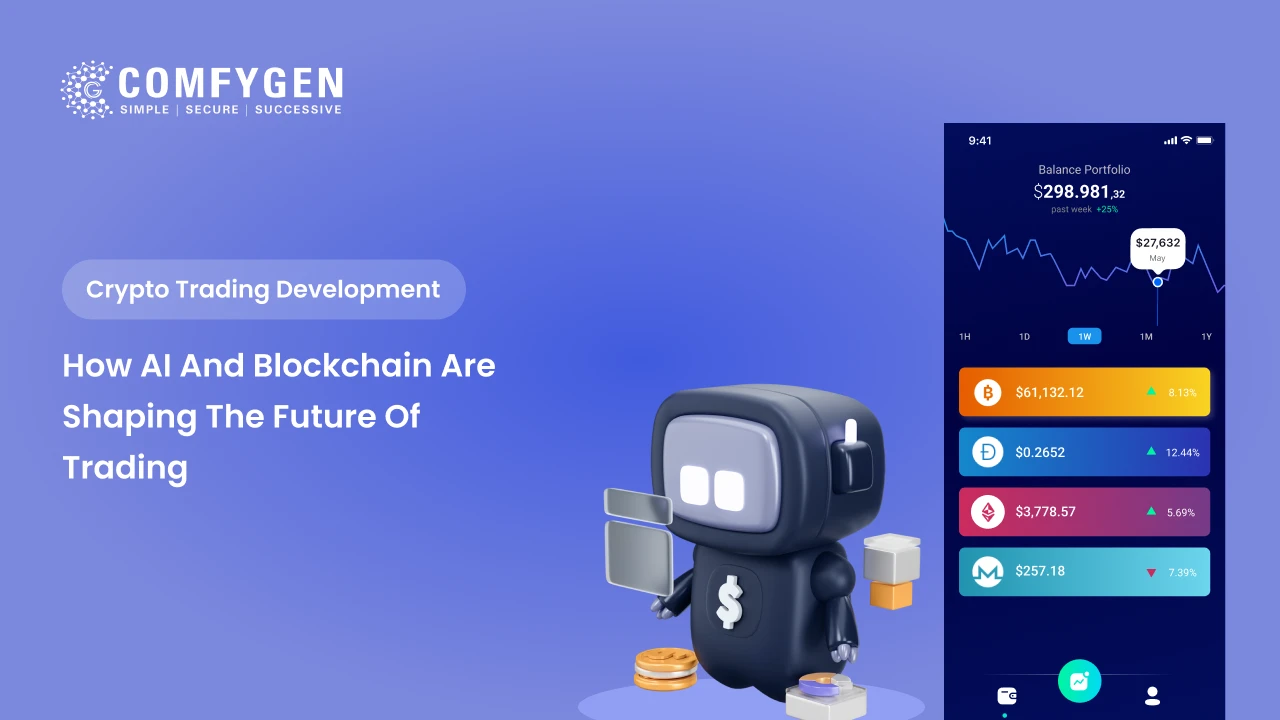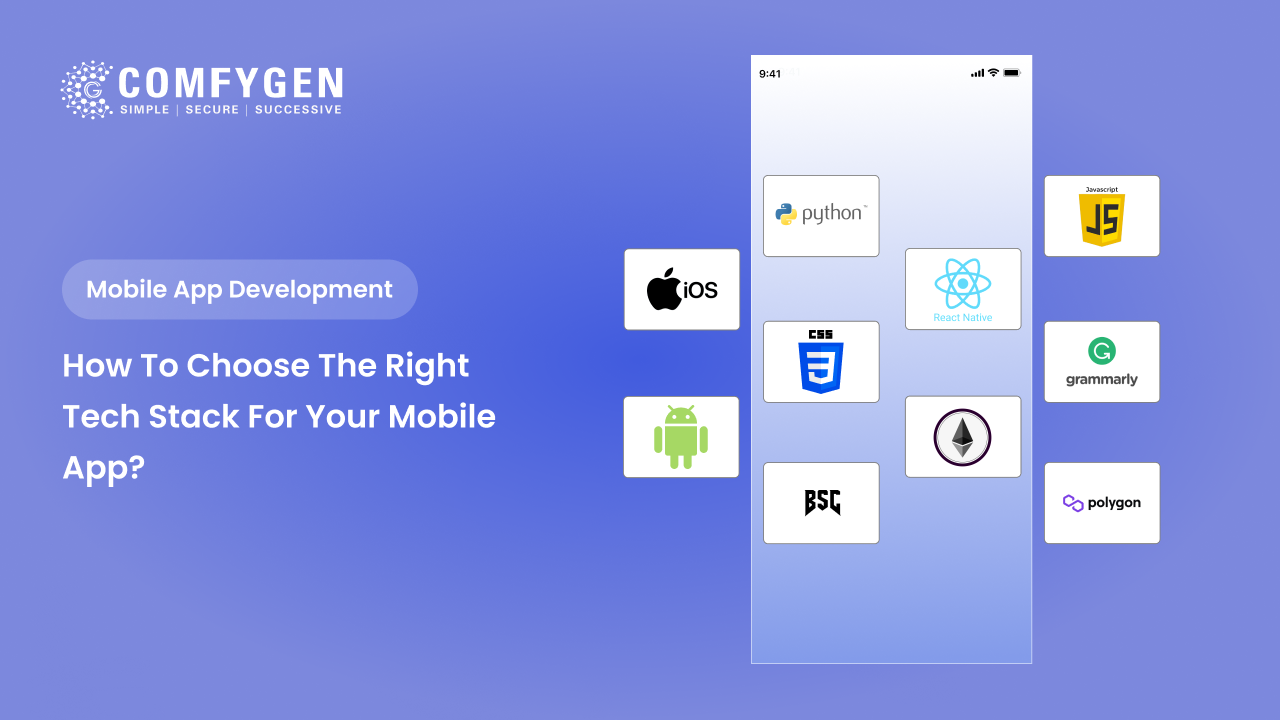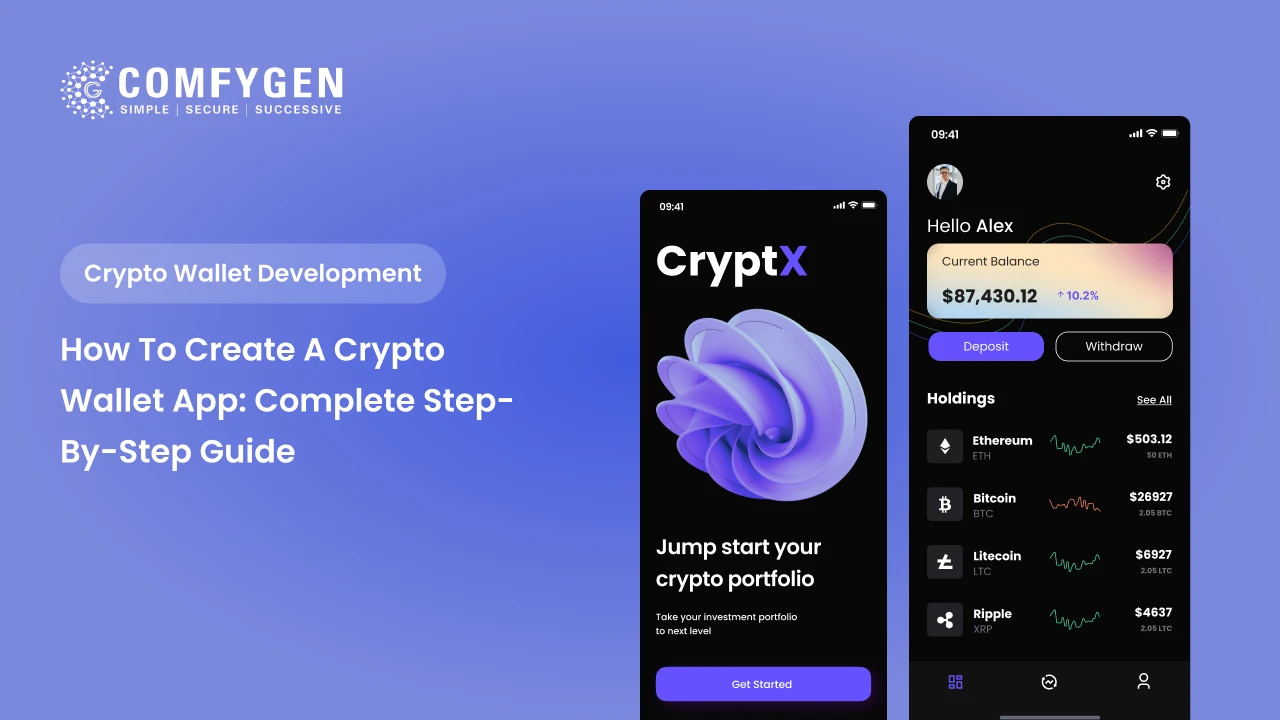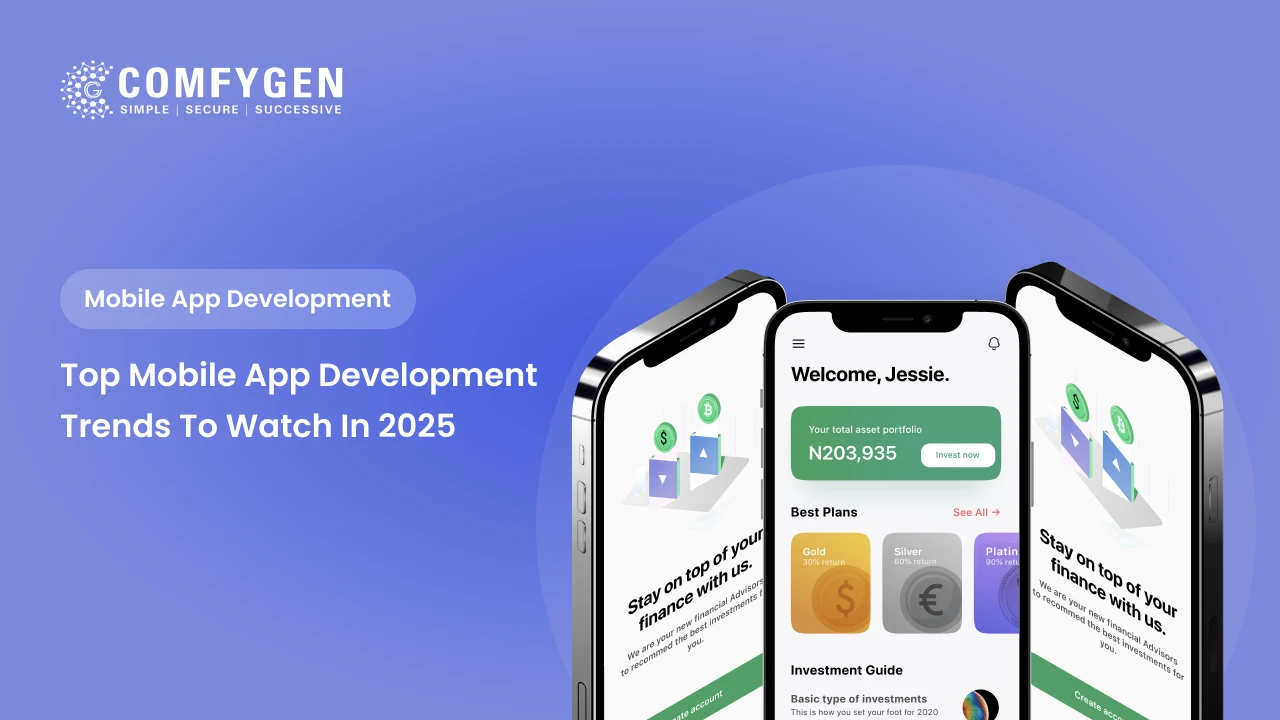How To Build AI-based Auto Job Apply Application?
Evolution of AI optimizing the job application platforms massively. Unlike traditional job application platforms, AI-based auto job application software automates job searches, personalizes applications, and increases efficiency for job seekers.
Based on a study, the AI-driven job matching systems boost an accuracy of 85%, whereas the traditional methods have an accuracy of 60%. Therefore, demand for AI-based job application platforms increased extensively, indeed.
An example: Unilever utilized AI to screen over 250,000 applications, reducing their hiring process duration from four months to just four weeks and saving approximately 50,000 hours of labor.
Traditional job applications require candidates to spend hours searching for relevant jobs, tailoring resumes, manually filling across multiple platforms, etc. With machine learning, natural language processing (NLP), and automation through AI integration; time is saved while improving success rates.
As AI continues to shape the recruitment industry, entrepreneurs are actively exploring opportunities to develop AI-based auto job application software, while traditional platforms are integrating AI-driven features to stay competitive.
This blog will guide you with benefits, features to implement, tech stacks, step-by-step development processes, challenges, and cost evaluation for AI-powered job app development.
To build an engaging and successful AI-based job application; thoroughly study the details below.
How Does AI-Based Job Application Software Work?
AI-based job application software leverages artificial intelligence, automation, and machine learning to streamline job searches and application processes. Unlike traditional platforms, automating processes significantly reduces time and effort.
Know how it works:
- Job Discovery & Matching: AI-driven platform enabling automated job searches and matching through ML and NLP. Analyzing keywords, job descriptions, and company requirements to match candidate’s resumes with relevant jobs.
- Resume & Cover Letter Optimization: Customize resumes based on job descriptions, generating cover letters tailored to the requirements while highlighting suited skills and achievements.
- Auto-Filling Job Applications: Automating data entry processes, pre-filled templates on job portals, and OCR integration to gather user data.
- Intelligent Job Tracking: Tracks job applications and interview invites in one centralized dashboard with real-time notifications for updates.
- AI-based Job Recommendations and Smart Filters: AI studies preferences and suggests high-relevant job opportunities based on the candidate’s profile. However, smart filtering is based on location and salary expectations.
- Automated Follow-Ups & Email Responses: AI automates follow-up emails, thank-you notes, and interview scheduling, enhancing engagement. Chatbots assist in recruiter interactions and instant responses, improving hiring chances.
- AI-Powered Interview Preparation (Advanced Feature): AI offers mock interview questions, analyzes responses via speech recognition, and provides feedback on tone, clarity, and confidence to refine job interview performance.
Features to Implement in AI Auto Job Application Software Development
Besides the traditional job application software features; there are some AI-driven features necessary to add to your advanced software version:
AI-Driven Resume Optimization & Keyword Enrichment
Ensuring compatibility with ATS, and enhancing resumes based on the job descriptions. Also, using AI-generated keyword suggestions improves visibility in recruiter searches while providing real-time resume scoring based on hiring trends.
Adaptive AI Cover Letter Generator
Build tailored cover letters using NLP, adjust tone, language, and structure for the job role in the specific industry. Moreover, it does personalized storytelling to make your application stand out.
One-Click Mass Applications with AI Prioritization
Allow users to apply for multiple jobs simultaneously with optimized resumes. However, AI prioritizes job applications based on success probabilities and company hiring trends and also prevents duplicate applications through intelligent tracking submissions.
AI-powered Job Market Insights & Trend Analysis
Providing real-time salary benchmarking based on industrial standards, and analyzing job market trends predicting in-demand skills for future-proof applications. However, it generates job competition heatmaps showing hiring trends by location and industry.
Automated Personal Branding & Linkedin Optimization
AI scans LinkedIn profiles, and suggest improvements based on hiring trends. Also, recommends engagement strategies (commenting on posts, sharing content) for boosted visibility, and profile rewriting for better keywords relevance professional appeal.
AI-Based Mock Interviews with Instant Feedback (Advanced Feature)
The AI-Based Mock Interviews feature simulates real interview scenarios using role-specific questions tailored to a user’s career goals. Leveraging voice recognition technology, it analyzes speech patterns, confidence, and clarity to provide a comprehensive evaluation.
Instant feedback highlights strengths and offers personalized tips for improvement, enabling users to refine their interview skills and boost their chances of success.
Job Networking AI Assistant (New Feature for Competitive Edge)
The Job Networking AI Assistant helps users expand their professional network by analyzing LinkedIn connections, company employees, and relevant job groups. It suggests strategic networking opportunities and even provides cold outreach email templates to connect with hiring managers.
Additionally, the AI automates informational interview requests, giving users an edge in exploring potential job prospects and growing their network efficiently.
AI-Driven Career Progression & Skill Gap Analysis (Advanced Feature)
This feature evaluates a user’s current skills and professional experience against real-time job market demands, identifying potential skill gaps. Based on this analysis, it recommends targeted certifications, online courses, and skill development programs to enhance career growth.
The AI also predicts long-term career paths, suggesting job transition strategies that align with the user’s goals for sustainable career progression.
Smart Profile & Document Management System
The Smart Profile & Document Management System centralizes all essential documents, including resumes, cover letters, and application materials, while maintaining version history for easy tracking. It securely stores certifications and achievements, ensuring quick access when needed.
The system also offers document formatting recommendations to create polished, professional presentations that make a strong impression on recruiters.
AI-Enhanced Behavioral & Personality Analysis for Job Fit (Unique Feature)
This unique feature uses AI to assess personality traits by analyzing a user’s work history, application behavior, and engagement patterns. It matches individual preferences and values with company cultures, ensuring a better job fit. By applying AI-driven psychology metrics, it recommends roles where users are most likely to excel, enhancing both job satisfaction and performance.
AI-Enabled Features to Integrate in AI-Based Auto Job Application Software
Besides the basic features in traditional job application portal, certain AI features are must to integrate for AI-powered job app software development:
AI-Powered Candidate Profiling
Build dynamic profiles by analyzing resumes, LinkedIn data, and user preferences for personalized job recommendations.
Natural Language Processing (NLP) for Job Matching
Uses NLP to match resumes with job descriptions, ensuring precise alignment of skills, experience, and job requirements.
Machine Learning-Based Job Recommendation Engine
Continuously refines job suggestions based on user interactions, application history, and evolving industry trends for higher success rates.
AI-Driven Resume and Cover Letter Enhancer
Optimizes resumes and cover letters with ATS-compatible keywords and formatting tips, improving visibility to recruiters.
Automated Application Submission & Tracking
Enables one-click mass applications, auto-fills forms, and tracks application progress through a centralized dashboard.
AI-Enhanced Interview Preparation Toolkit
Offers mock interviews with voice analysis, providing real-time feedback on tone, clarity, and confidence for better performance.
AI-Powered Salary Benchmarking & Negotiation Assistant
Analyzes market data for accurate salary benchmarks and suggests personalized negotiation strategies to secure competitive offers.
Real-Time Analytics Dashboard for Performance Tracking
Tracks application success rates and engagement, providing data-driven insights to optimize strategies and improve job search outcomes.
Aslo Read: Build an AI-Powered Salon App for Your Business
Tech-Stacks to Develop AI-Enabled Job Application Software
Programming Languages (Python, JavaScript, Java)
Python for AI/ML algorithms, JavaScript for frontend development, and Java for building scalable backend systems.
Frontend Frameworks (React.js, Angular, Vue.js)
Create responsive, user-friendly interfaces with dynamic components for seamless user experience across devices.
Backend Frameworks (Node.js, Django, Spring Boot)
Manage server-side logic, API integration, and handle data flow between the client and server efficiently.
Artificial Intelligence & Machine Learning (TensorFlow, PyTorch, Scikit-learn)
Build AI models for job matching, resume parsing, and personalized job recommendations using advanced algorithms.
Natural Language Processing (NLP) Libraries (spaCy, NLTK, GPT APIs)
Enable text analysis for job descriptions, resume parsing, and generating personalized cover letters.
Database Systems (MongoDB, PostgreSQL, MySQL)
Store user profiles, job listings, applications, and system logs with structured and unstructured data handling capabilities.
Cloud Platforms (AWS, Google Cloud, Microsoft Azure)
Support scalable hosting, AI/ML services, data storage, and real-time analytics for seamless application performance.
APIs & Integrations (LinkedIn API, Google Jobs API, RESTful APIs)
Fetch real-time job listings, company data, and integrate with professional networks for enhanced job discovery.
Authentication & Security (OAuth 2.0, JWT, SSL/TLS)
Ensure user data security, encrypted communications, and safe authentication processes throughout the platform.
DevOps Tools (Docker, Kubernetes, Jenkins)
Streamline development, deployment, and scaling processes, ensuring efficient management of microservices and AI models.
Real-Time Notifications (Firebase, Socket.IO, Twilio)
Provide instant job alerts, interview invitations, and user engagement through emails, push notifications, and SMS.
Data Visualization (Tableau, Power BI, D3.js)
Create insightful dashboards for users and admins to monitor job applications, success rates, and platform performance.
AI Chatbots & Voice Assistants (Dialogflow, IBM Watson, Rasa)
Automate user support, job search assistance, and schedule interviews with AI-driven conversational interfaces.
OCR Tools (Tesseract, Google Cloud Vision API)
Extract data from resumes, certificates, and documents for automated form-filling and profile building.
Version Control (Git, GitHub, GitLab)
Track code changes, manage collaboration, and maintain version control throughout the development lifecycle.
Also Read: Cost and Features of AI-Powered Dating App Development
How to Develop AI-Based Job Application Software?
Here are some step-to-step flow has been shared to showcase how the AI-based Job App Software development process:
Conduct In-Depth Marker Research
Conduct comprehensive market research to identify user’s pain point, recruitment challenges, industrial gaps, and evolving recruitment trends. This will ensure AI-powered platform addresses user’s needs offering unique and market competitive features.
Define Core Features & AI-Capabilities
Prioritize essential features; such as AI-enabled job matching, auto-application submission, and resume optimization. The integrated advanced AI capabilities; such as skill gap analysis, and predictive analytics, and personalized job recommendations for enhanced user engagement.
Choose the Right Tech Stack
When developing AI-based job application software; be sure to choose some robust technologies; such as React-js development or Angular for responsive frontend, Node.js or Django for supportive backend development, and MangoDB or PostgreSQL for efficient data-storage management.
Integrate AI & Machine Learning Models
You have to employ TensorFlow or PyTorch for creating AI algorithms that enable relevant job matching, predictive analytics, and user profiling. Also, try with SpaCy or GPT APIs for NLP tasks like keyword enrichment and resume parsing.
APIs & External Integrations
Must integrate some important APIs; such as Linkedin API and Google Jobs API for real-time job listing. Alongside, use OCR Tools like Tesseract to extract data from resumes, improve auto-filling, and enhance profile engagement.
Develop AI-powered Chatbots & Virtual Assistants
Must integrate some chatbots using Django or Rasa to offer real-time user-support, job recommendations, and interview scheduling. However, AI assistants enhance users engagement and streamline job searches.
Ensure Security & Scalability
Apply security protocols like OAuth 2.0, JWT, and SSL/TLS for safe authentication and encrypted data transfer. Host on AWS or Google Cloud for seamless scalability and high platform availability.
Real-Time Analytics & Notifications
During development, integrate Firebase and Twilio to deliver real-time notifications, interview invites, and job alerts. Use AI-powered dashboards to track application success rates and user engagement metrics for continuous optimization.
How Much Does it Cost to Develop an AI-based Job App?
The average AI auto job application software development costs ranges between $50000-$150000. On the contrary, exact cost of app development or software creation depends upon several factors; such as complexity, features, technology stack, development, team rates, third-party integrations, etc. Below shown is the breakdown:
Basic AI-powered Job Application Platform: It is consisted with core features, basic UI/UX Designs, and good fit for startups with minimum AI integrations. Ranges between $25000-$40000.
Mid-Leval AI-Driven Platform: It is consisted with advanced AI features, integrations (linkedin, job boards, real-time notifications), and improved UI/UX designs.
Complex AI-enabled Software: It ranges between $100000-$200000, consisted with high-end features (salary benchmarking, sentiment analysis, predictive analytics), integration of machine learning, predictive analytics, and real-time data processing, and many more.
Key Cost Factors:
- Development Team Rates: Rates vary globally ($20-$50/hour in Asia, $70-$150/hour in North America).
- Tech Stack & AI Integration: Complex AI models, NLP, and machine learning add significant costs.
- Third-Party API Integrations: Costs for LinkedIn API, Google Jobs API, and OCR tools like Tesseract.
- Cloud Hosting & Maintenance: Ongoing costs for AWS, Azure, or Google Cloud hosting, plus regular updates.
- Post-Launch Support: Bug fixes, feature enhancements, and security updates contribute to ongoing expenses.
Cost-Saving Tips:
- Start with an MVP focusing on core AI features and expand later.
- Use open-source AI frameworks like TensorFlow or PyTorch.
- Opt for cloud-based services with pay-as-you-go pricing to manage hosting costs.
How Comfygen Can Help in Developing AI-enabled Job Apply Portal?
Comfygen is a leading mobile app development company, that has been excelling in every domain and niche specific. We have built some robust recruitment platforms for clients from diversified countries under NDA signed.
If someone is interested in building an AI-powered job application software, then he/she must consult to our expertise. We are working on robust tech-stacks, advanced features, and complex UI/UX designed with customizations.
Consult with us, and we will build a super-engaging and leveraging AI-based job application platform in within competitive development cost matching current market standards.
Final Verdict
Developing an AI-based auto job application software is a big evolution and need for the modern recruitment industry. These AI-enabled platforms infused various features; such as AI-driven job matching, NLP, based resume optimization, and real-time analytics. Now the recruitment businesses can offer user-centric solutions that is boosting success rates very efficiently.
While development costs vary based on complexity and features, investing in AI-powered platforms ensures long-term growth and competitiveness. Partner with Comfygen is a best AI App development company in India, to create a scalable, feature-rich platform tailored to evolving market needs. Let’s turn your vision into a transformative recruitment solution.

Mr. Saddam Husen, (CTO)
Mr. Saddam Husen, CTO at Comfygen, is a renowned Blockchain expert and IT consultant with extensive experience in blockchain development, crypto wallets, DeFi, ICOs, and smart contracts. Passionate about digital transformation, he helps businesses harness blockchain technology’s potential, driving innovation and enhancing IT infrastructure for global success.

